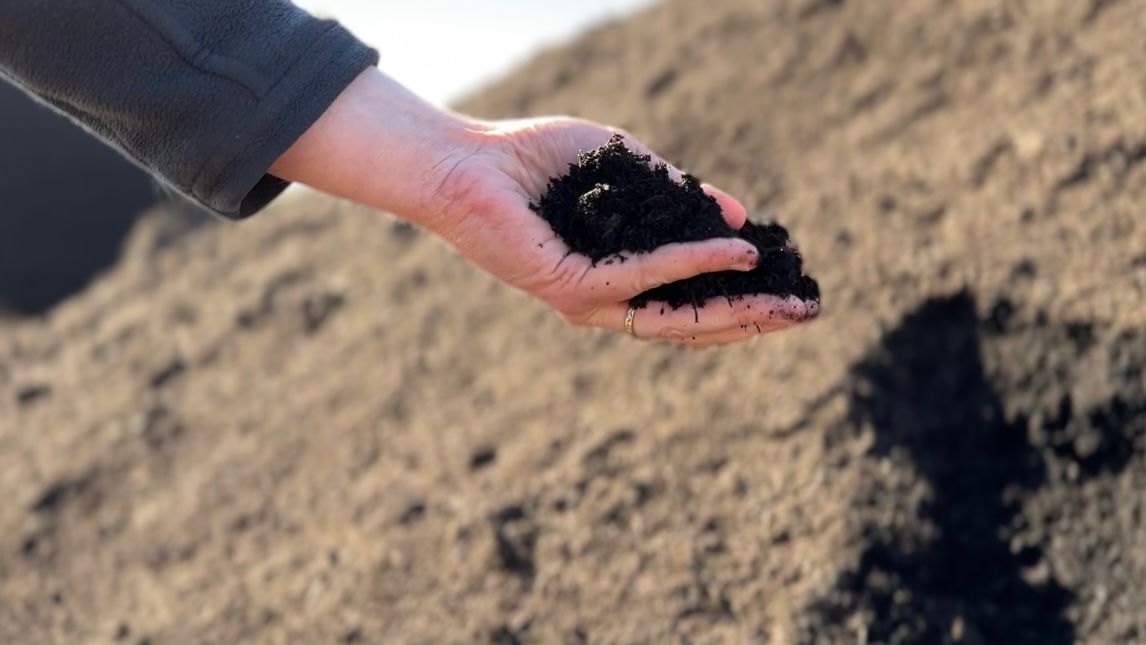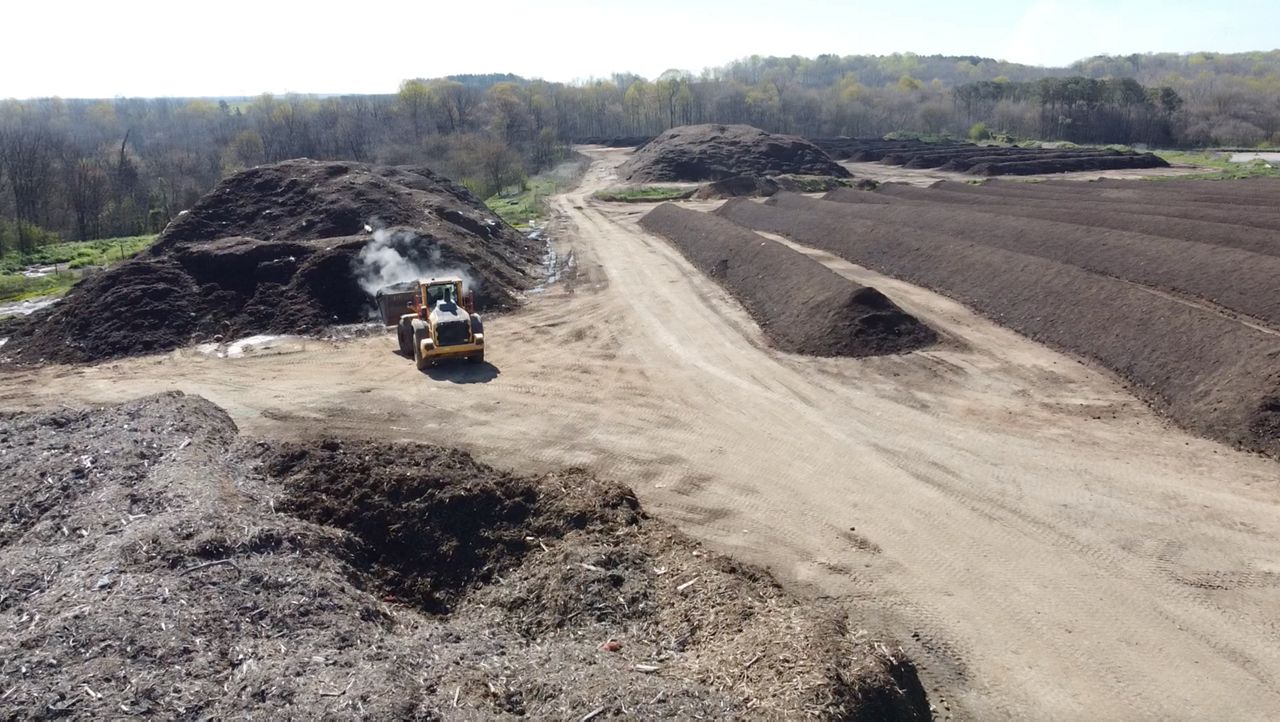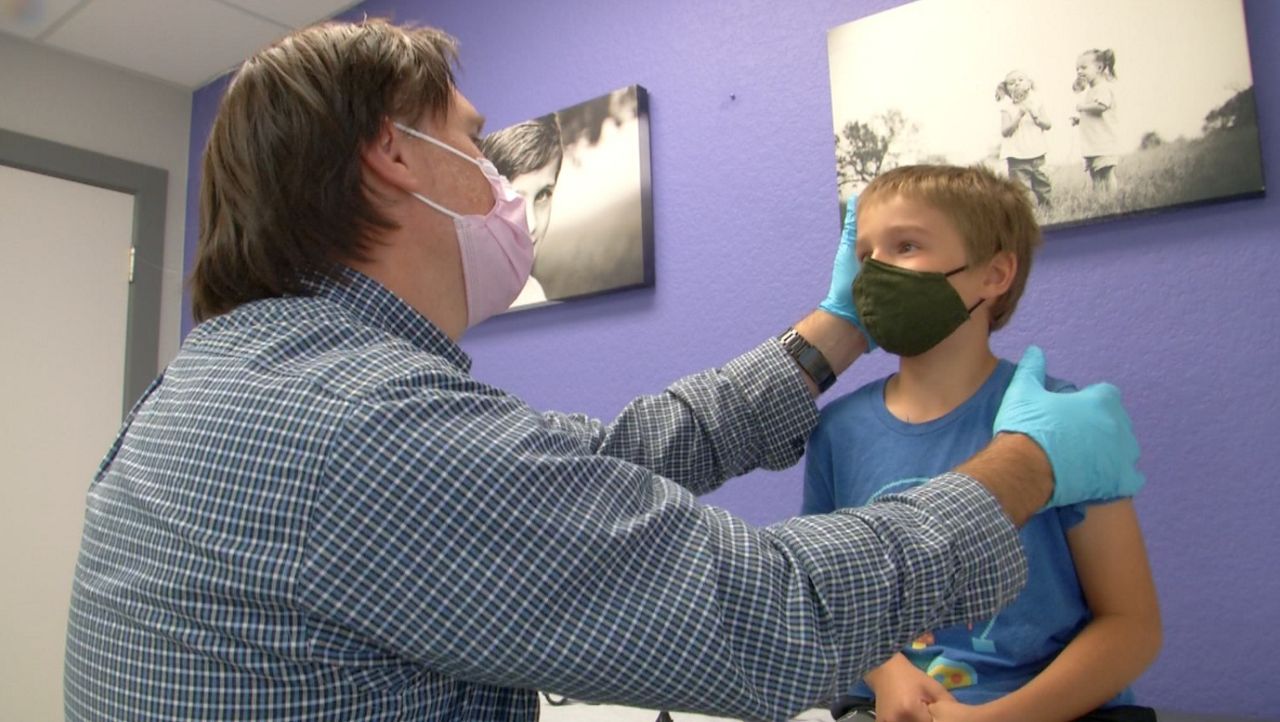CHATHAM COUNTY, N.C. — We’re all quick to take out the trash when it starts to smell, but that scent brings with it the capability for new life as many people turn to composting as a way to repurpose food waste.
One of the first places in the southeast to start collecting food waste and turning it into compost continues to grow over 20 years later. Brooks Contractor began in the 1990s and has expanded to serve the entire Triangle area, stretching from Southern Pines to Greensboro.

“We can't just burn or bury everything, right?” said Amy Brooks, the assistant facility manager at Brooks Contractor. “So if we can capture these organics, sending them through a system that makes them better and then send it back out to farmers, gardeners, landscapers, that is a value-added product. So we've taken a waste product and made something that has a lot of value back to the landscape.”
Brooks watched this operation transform from her parents’ dairy farm to a small composting operation to the growing business it is today. They blend any food waste that comes in with things like horse manure, shavings and yard waste from nearby municipalities, such as the Town of Cary.
Composting isn’t a new discovery, but it is a rapidly growing industry. Cities and consumers are all looking for ways to reduce the amount of waste entering dumps and landfills. A good portion of household waste is made up of food particles that can be broken down and returned to the soil.

“Whenever you have the right carbon and nitrogen ratio, the material will start to heat up,” Brooks said. “This is due to all the biology going to town getting active, eating away at this material and turning it into something that resembles soil.”
Their system has created a closed loop cycle — farmers grow produce for restaurants, restaurants send in their food waste, compost goes back to the farmers. And they encourage people to return to reusable goods wherever possible — real silverware, real plates, reusable water bottles — even over things that may be compostable or recyclable.
“If there's any way that you can get around using a bag, even a compostable bag, please do so,” Brooks said. “Compostable products themselves, you're still tossing the product away.”
The composting process itself takes many months from initial collection to distribution. The material has to settle and cure before ever being screened and sorted into various usable products.






_Cropped)


